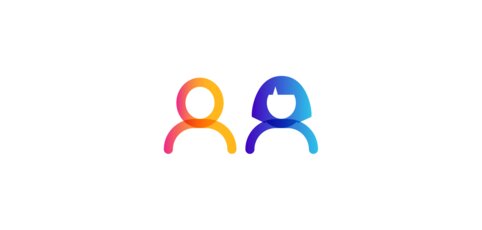Claire B's story
#NowIKnow Claire B’s story...
I knew I was different from a very early age. I didn't 'fit in' with the other children. I didn't require any social interaction and my somewhat 'strange' behaviours gave cause for concern. Although I had no name for the way I behaved, I knew that I was inherently different from other people. I felt alienated as a child, but not in a bad way, due to the fact I never felt the need for social interaction or human contact. I just felt that was part of me, how I was designed if you like, however I did question why everyone else was very much the same and I saw myself as somewhat 'unique'. I feel it made more of a difference to my family than it actually did to me. I was fine living in my own world, wanting to be a solitary child and preferring to distance myself from others. I knew people thought I was strange, however it meant nothing to me. I was happy in my own world and wished that people would just let me get on with my rituals and routines without question, judgement or indeed fear. I was always seen as 'strange', nonetheless, I certainly felt that while I did appear different to others, I always felt that other people were the strange ones.

"I knew people thought I was strange, however it meant nothing to me. I was happy in my own world and wished that people would just let me get on with my rituals and routines without question, judgement or indeed fear."
Growing up undiagnosed was incredibly difficult. I needed to keep to certain routines and rituals in order to lead a structured and harmonised day. For example, if I was asked to do something in my workplace that was outside of my remit, I would have had a complete meltdown. I was undiagnosed and work colleagues could not understand the reason for such meltdowns over being asked to do quite possibly the simplest of tasks. I could not understand it either. It was overwhelming, frightening and somewhat embarrassing, as I could not explain what led to my frustrations or my outbursts. Being undiagnosed meant that there was no help, support, understanding or indeed tolerance of what I was going through and I was labelled as a rude child and as an adult I was labelled as 'weird', 'aloof' or 'not quite right'.
"If I had been diagnosed as a child, perhaps people would have had more understanding and empathy to how my life needed to be lived."
I struggled in school (although I did very well) as I didn't understand teaching methods. Autistic people are very visual - so a teacher lecturing verbally for hours on end was something I could not grasp very well at all. Whilst I could be myself at home, I had to 'mask' when in social settings or in the workplace - just simply so I could be like the 'others' and not judged. The impact on your life can be a somewhat detrimental one.
Because you look so 'normal' people are quick to dismiss you and cannot begin to understand how complex and harrowing a single day can be for you. You have to learn to try and fit into a neurotypical world, while all the time your complete being is fighting against it. What feels so right to others, feels incredibly wrong to me. If I had been diagnosed as a child, perhaps people would have had more understanding and empathy to how my life needed to be lived. I possibly would have had better guidance on how to try and live in a neurotypical world. It wouldn't have changed the fact that I was autistic, but perhaps made me understand better.
For many people, autism is associated with being male and essentially that it is a male only condition. Women tend to be overlooked because, I for one feel we can mask better - we can possibly hide our emotions better and possibly because we may not have many of the 'classic symptoms’ associated with autism that people tend to think of. I feel it is important to get the message out there that this condition can affect anyone, whether you are male or female - but that it just may present in different ways. It is about challenging stereotypical images of autism. It is about educating the professional people we will come into contact with throughout our lifetime - should that be doctors, nurses, social workers, teachers etc.
It is about educating benefits agency staff, as so many autistic people are reliant on this help and it is about educating society as a whole. We must explode the myth that autism is a male phenomenon and in fact does affect just as many females. The only way we can do this is by getting our voices out into the public arena and hopefully people will want to be listen. We must educate, inform and help neurotypicals understand that females diagnosed with the condition can and will need as much help, understanding and support as males on the autism spectrum.
Share your story on social media using #NowIKnow

